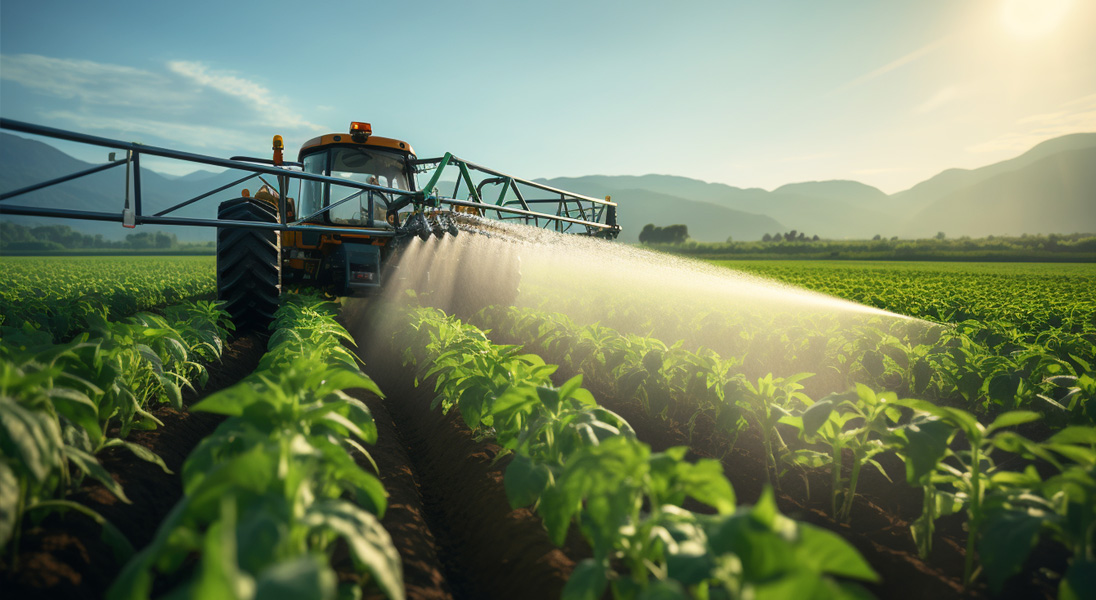Potato farming: reducing chemical dependence with biostimulants
Scientific research

The growing concern of chemical inputs in potato farming
Modern agriculture relies heavily on chemical fertilisers and pesticides to maintain high yields and protect crops from diseases and pests. However, excessive chemical use presents significant challenges:
- Soil degradation – Prolonged use of synthetic fertilisers depletes soil health, reducing its natural fertility over time.
- Environmental impact – Runoff from nitrogen-based fertilisers contributes to water pollution, while pesticide residues harm beneficial soil organisms and pollinators.
- Resistance build-up – Overuse of chemical pesticides leads to resistance in pests and diseases, demanding even higher doses.
As concerns over sustainability grow, potato growers must find alternatives that maintain high productivity while reducing environmental harm.
The role of biostimulants in sustainable potato farming
Biostimulants, particularly those derived from plant-based flavonoids, offer a biological alternative to chemical inputs. Rather than artificially forcing growth or killing pests, they work by enhancing the potato plant’s natural capabilities.
How flavonoid-based formulations reduce chemical dependency
Enhance nutrient uptake
They improve root development and soil microbial interactions, leading to more efficient nutrient absorption. This reduces the need for high fertiliser applications while maintaining strong growth.
Boosts natural defences
Flavonoids activate plant defence mechanisms, helping potatoes resist fungal infections, bacteria, and abiotic stress (e.g., drought, extreme temperatures). As a result, growers can reduce their reliance on synthetic pesticides without compromising yield.
Strengthen photosynthesis & growth
By enhancing chlorophyll production and photosynthetic efficiency, biostimulants support faster, healthier growth with fewer inputs. This means less dependency on nitrogen fertilisers while still achieving high yields.
Improve water use efficiency
They help plants retain moisture and optimise water absorption, making them less susceptible to drought stress. This allows for better growth with reduced irrigation and fertiliser leaching.
Proven results in potato crops
Research on Maxstim’s flavonoid-based biostimulant, Agriculture+, has demonstrated:
- 5.2% yield increase across six commercial potato varieties.
- Higher chlorophyll levels, leading to stronger, greener plants that require less synthetic intervention.
- Up to £700 per hectare in added value, thanks to larger, more marketable tubers.
These benefits translate into a more sustainable farming system, where lower chemical inputs still deliver strong yields and quality tubers.
The Future: A balanced approach to potato farming
Transitioning away from chemical-intensive farming doesn’t happen overnight. However, integrating biostimulants into standard cultivation practices can significantly reduce reliance on synthetic fertilisers and pesticides.
Read the full story hereWant to see it in action? Contact Tony now to get started.
Tim Cannon
Email: tim.cannon@maxstim.com
Mobile: 07884 586191
Phil Kingsmill
Email: phil.kingsmill@maxstim.com
Mobile: 07860 269996
Leanne Coleman
Email: leanne.coleman@maxstim.com
Mobile: 07552 097554
Tony Kelly
Email: tony.kelly@maxstim.com
Mobile: 07974 435417

